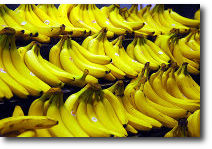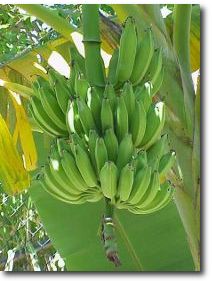Fair Trade
Author and Page information
- This page: https://www.globalissues.org/issue/61/fair-trade.
- To print all information (e.g. expanded side notes, shows alternative links), use the print version:
"Except for religious conflicts and the petty wars of feudal lords, wars are primarily fought over resources and trade. President Woodrow Wilson recognized that this was the cause of World War I: 'Is there any man, is there any woman, let me say any child here that does not know that the seed of war in the modern world is industrial and commercial rivalry?'"
"Never before have so many people had so much in common, but never before have the things that divide them been so obvious."
Globalization, trade and the free markets are the talks of today. Many envision or talk about a future where people of different nationalities and cultures will be able to share and trade resources across boundaries in a manner that will benefit all of humanity.
But, how fair is trade when a nation's own global trading policies together with international corporations' desire to increase their profits result in manipulated international trade pacts and agreements, so that they are most favorable for themselves? How free is the free market? Why do the poor get poorer and the rich get richer?
A lot of overbearing regulations can give too much power to a few, and potentially corrupt ruling regime and prevent innovative ideas from flourishing. It can perhaps be an obstacle for a foreign nation to invest in a country due to those conditions and regulations which increase costs. (The fact that some of these regulations are usually for the benefit for the people of that nation poses another problem, altogether, mentioned in the MAI and Free Trade sections.)
However, too much deregulation can lead to corporations being able to undermine basic social and human rights as well as lead to environmental damage, often without accountability. IMF-imposed structural adjustment and their pushes for deregulation has also led to further poverty in some countries.
The correct balance is difficult to reach due to the inherent power conflicts between the various bodies involved. This leads to a lot of unfairness in trade and basic human rights for which the majority of people end up paying the price. For example, some believe that one of the main problems causing the 1998/99 financial crisis around the world is a lack of global regulations to help protect developing nations as they enter a global market. Even the World Bank has cautioned that globalization and localization (the increasing demand for local autonomy) can pose problems as well as offer benefits, if not handled properly.
There is already a growing fair trade movement around the world, where local producers are able to fairly trade their products. However, it isn't always easy to maintain that when globalization, in its current form, does not seem to favor those who want trade to be fair.
5 articles on “Fair Trade”:
Child Labor
Read “Child Labor” to learn more.
The Banana Trade War
 Bananas are widely consumed. Yet, they represent a wide variety of inter-related issues, from environmental, economic, social, and political. Nations and regions, such as the US and EU have in the past battled in a trade war over how bananas are exported and imported, affected the poorest in the producing countries the most.
Bananas are widely consumed. Yet, they represent a wide variety of inter-related issues, from environmental, economic, social, and political. Nations and regions, such as the US and EU have in the past battled in a trade war over how bananas are exported and imported, affected the poorest in the producing countries the most.
Read “The Banana Trade War” to learn more.
Bananas
 The banana industry in Latin America and the Caribbean also touches many other issues. Rainforest destruction is one effect of the banana industry.
The banana industry in Latin America and the Caribbean also touches many other issues. Rainforest destruction is one effect of the banana industry.
Dependent economies is another, where bananas are grown not to feed local people and meet their demands, but to create exports for Europe and America. The recent trade disputes between those two regions have received the most attention. However, the focus of the debate is limited. It continues to leave both dependent Latin American nations, and the Caribbean nations in poverty and hunger, while Latin American nations, large multinational American banana corporations and the American government seek to destroy the Caribbean banana economy, via the World Trade Organization, in order to gain dominant access to the European markets.
So many resources are poured into the banana industry, and like the sugar and beef examples, there is a lot of unnecessary use of resources that could otherwise be freed up to help local people in a way that is also less degrading to the surrounding environment.
Read “Bananas” to learn more.
Pineapples
 Pineapples are nutritious and popular. But the cheap fruit comes at a high cost. Health and environmental degradation has affected both workers and local communities. Price cuts in European supermarkets has led to wage cuts for workers already earning very little.
Pineapples are nutritious and popular. But the cheap fruit comes at a high cost. Health and environmental degradation has affected both workers and local communities. Price cuts in European supermarkets has led to wage cuts for workers already earning very little.
Read “Pineapples” to learn more.
Trade, Economic Links For More Information
Read “Trade, Economic Links For More Information” to learn more.
Author and Page Information
- Created:
- Last updated:
 Global Issues
Global Issues